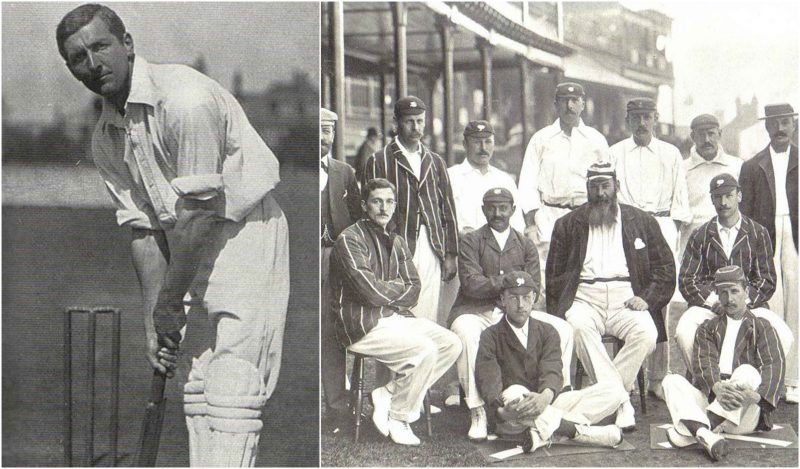No sportsman have earned better words and praise than Charles Burgess Fry or simply known as C. B. Fry. He was mostly famous for his sporting career, but he also left a mark as a journalist and writer, editor and publisher, politician and diplomat, and as an academic and teacher. Yes, all in only a single lifetime. He was one of the most notorious cricketers of England. John Arlott, the BBC’s cricket commentator, has described C. B. Fry with the words:
“Charles Fry could be autocratic, angry and self-willed: he was also magnanimous, extravagant, generous, elegant, brilliant – and fun … he was probably the most variously gifted Englishman of any age.” – from the 1984 book “Arlott on Cricket – His Writings on the Game” by Harper Collins Willow.
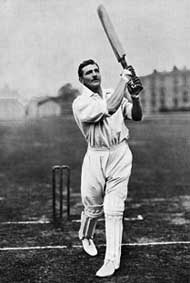
C. B. Fry was born in Croydon, in 1872. He won scholarships, at first for Repton School, and then for Wadham College, Oxford, from where he gained a first-class honors degree in Classical Moderation. Even in Repton, C.B. won the school prizes for Latin Verse, Greek Verse, Latin Prose, and French. And he was also a runner-up in German. And it was at this time, while he was falling in love with Classics, that he demonstrated his athletic skills.
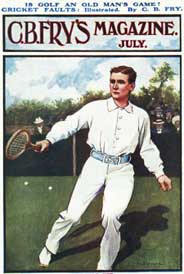
While at Oxford, he represented the university gaining a total of twelve Blues. In one year C.B. managed to captain football, athletics, and cricket teams, which earned him the nicknames “Almighty” and “Lord Oxford.” He also played for the Rugby Union but failed to win a Blue due to an injury. He also represented his college in ice-skating at the inter-College races in the winter of 1894-95, held on the frozen Blenheim Lake.
“Lord Oxford” proved himself to be a decent shot putter, boxer, hammer thrower, golfer, tennis player and swimmer. And yet, no matter how bright his sporting and academic career was, C.B. never earned or had much money. And so it happened, during his last year at Oxford, at the time of exams and sporting events, to suffer the first mental breakdown. To support himself at university C.B. got into a huge debt and in order to repay it, he tried to earn money by writing articles, private tutoring, and at the end, nude modeling.
In 1893, the “Oxford Superman” made a jump that equaled the world jump record at the time of 23’ 6½” (7.17m). The funny thing is that it wasn’t even his favorite or primary discipline. And even funnier is that before he did the jump, he prepared himself by smoking a cigar. After completing the jump, C.B. just went back to finish his cigar. Next year, he won both the long jump and 100 yards sprint at the world’s first international athletics event held at London’s White City stadium.
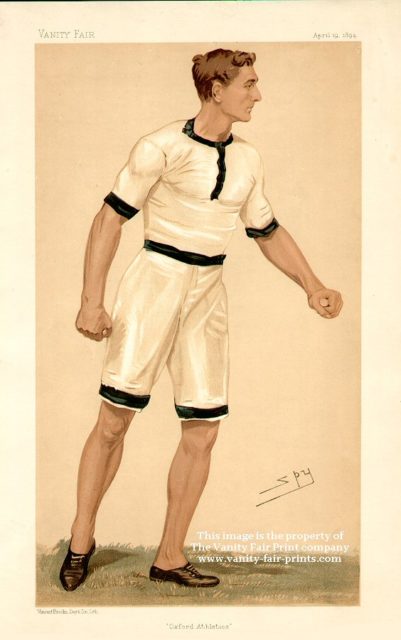
In December 1900, he played his debut match for Southampton against Tottenham Hotspur. Only a few months later, the “Almighty” got chosen for the England team in a match against Ireland. The following season he played for Southampton in the FA Cup final against Sheffield United.
Besides his achievements in variety of disciplines, C.B. entered history when he got on the cricket field. He first played for Surrey in 1891; from 1892 to 1895 for Oxford University; Sussex from 1894 to 1908, where he served as a captain since 1904; and from 1909 to 1921, he played for Hampshire. In 1895-96 C.B. was selected by England for the tour of South Africa. In 1901, C.B. totaled 3147 runs, an average of over 78 runs per innings. That same year, he scored a record of 13,000 and an unprecedented six centuries in 6 consecutive innings in only two weeks, which remains to this day.
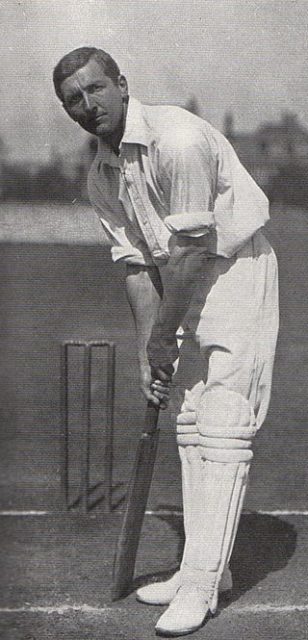
In 1896, C.B. started working as a teacher at Charterhouse for two years before he started his career as a journalist. At the League of Nations, C.B. worked as a deputy and speechwriter for the Indian delegation. It was during this time that he was offered the Albanian throne. Apparently, the Albanian delegation was in search of English gentlemen with an income of £10,000 a year to become their king. He also got involved in politics, standing as the Liberal candidate for Parliament in Brighton in 1922. At the elections, C.B. won 22,059 votes, only 4,785 fewer than the Conservative victor.
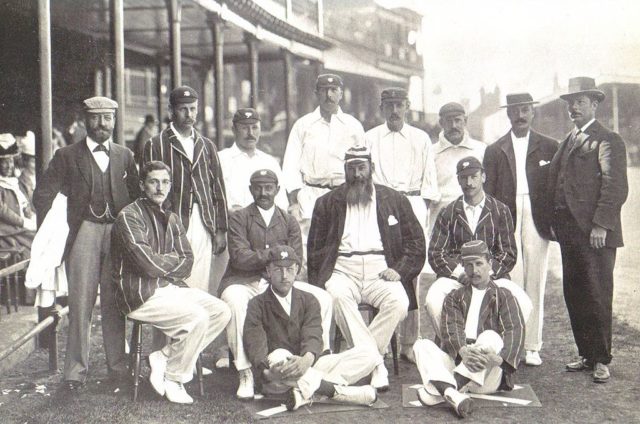
The genius had mental health problems that started during his time at university. He suffered a few mental breakdowns and worsened mostly in the 1920s when he suffered a major one and became paranoid. In 1928 C.B. experienced his breaking point when he visited India and got convinced that an Indian cast a spell on him.
The “grand old man of sport” retired from cricket altogether at 49. He also published autobiographical books and a few on cricket. As his mental health deteriorated, C.B. spent his time more calmly, with fewer activities. He died in 1956 at the age of 84, in Hampstead, London. His ashes were buried in the graveyard of Repton Parish Church.
